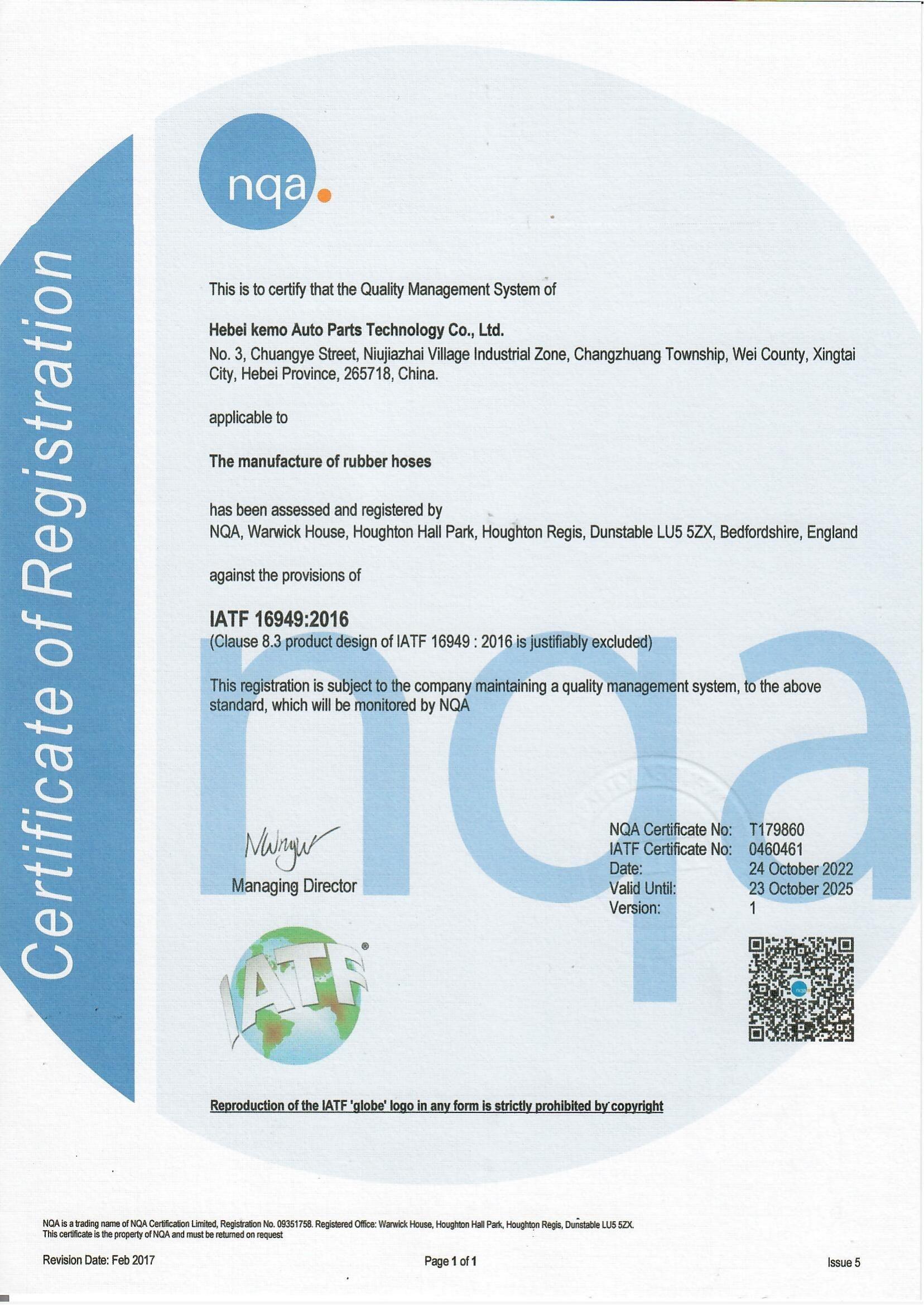hose fuel line
Nov . 12, 2024 11:05 Back to list
hose fuel line
Understanding Hose Fuel Lines An Essential Component for Fuel Delivery Systems
In the realm of automotive engineering and machinery, one component plays a crucial role in ensuring the efficient delivery of fuel from the tank to the engine – the hose fuel line. While often overlooked, the importance of this component cannot be stressed enough. As vehicles and machinery become increasingly advanced, understanding the functionality, types, maintenance, and innovations related to hose fuel lines becomes essential for anyone interested in automotive technology or machinery operation and repair.
What is a Hose Fuel Line?
A hose fuel line is a flexible tube designed to transport fuel from the fuel tank to the engine or combustion chamber. Typically constructed from durable materials such as rubber, polymer, or a combination of both, fuel lines must withstand various environmental factors, including temperature fluctuations, fuel corrosiveness, and pressure variations. The design of these hoses is critical, as they must ensure that no fuel is lost during transit and that the integrity of the fuel system is maintained.
Types of Hose Fuel Lines
Hose fuel lines come in several types, each suited for different applications
. The most common types include1. Rubber Fuel Hoses Traditional rubber fuel lines are often used in older vehicles. They are flexible and can handle various fuel types but may degrade over time due to exposure to petroleum products and UV light. 2. Polyurethane and PVC Hoses These hoses offer good chemical resistance and are often used in modern vehicles for fuel delivery. They have higher durability compared to traditional rubber hoses. 3. Stainless Steel Braided Hoses Often used in high-performance applications, these hose lines provide maximum strength and durability. Their braided design protects against pressure while offering resistance to abrasion and corrosion.
4. Reinforced Fuel Hoses These are typically made from synthetic materials with added fiber reinforcements, making them ideal for high-pressure applications. They are used where greater strength and resilience are required.
hose fuel line

Maintenance of Hose Fuel Lines
Regular maintenance of hose fuel lines is essential for preventing leaks and maintaining optimal engine performance. Here are some tips to ensure your fuel lines are in good condition
- Visual Inspections Regularly inspect hoses for signs of wear, such as cracks, bulges, or fraying. Even minor damage can lead to costly repairs if not addressed promptly. - Check Connections Ensure that all connections and fittings are secure. Loose fittings can cause fuel leaks, which are not only dangerous but also inefficient. - Replace Old Hoses Over time, hoses can degrade due to exposure to heat, fuel, and other environmental factors. It's crucial to replace old or damaged hoses to prevent failure. - Use Quality Products When replacing fuel lines, always opt for high-quality hoses that meet the manufacturer's specifications. This ensures compatibility and enhances overall safety.
Innovations in Hose Fuel Lines
As technology evolves, so do the materials and manufacturing processes used in the production of fuel lines. Innovations in hose technology are focusing on improving durability, fuel efficiency, and resistance to harsh conditions. For instance, new composite materials are being developed that offer enhanced resistance to heat and chemicals while remaining lightweight. Furthermore, advancements in manufacturing techniques, such as improved braiding and bonding methods, are leading to stronger and more reliable fuel lines.
Conclusion
Though they may seem like minor components, hose fuel lines are fundamental to the proper functioning of any vehicle or machinery. By understanding their importance, types, and maintenance tips, vehicle owners and operators can help ensure their fuel systems remain functional and efficient. As innovations continue to enhance the performance and reliability of these critical components, we can look forward to better fuel delivery solutions in the automotive industry and beyond. Whether you’re a DIY enthusiast or a professional mechanic, a comprehensive understanding of hose fuel lines is imperative for effective vehicle maintenance and performance optimization.
